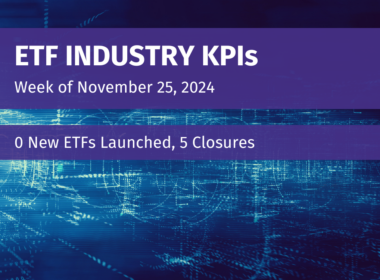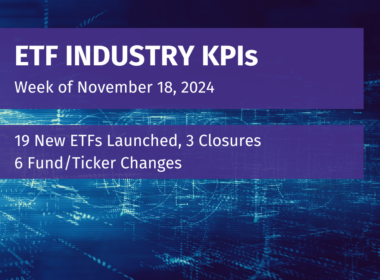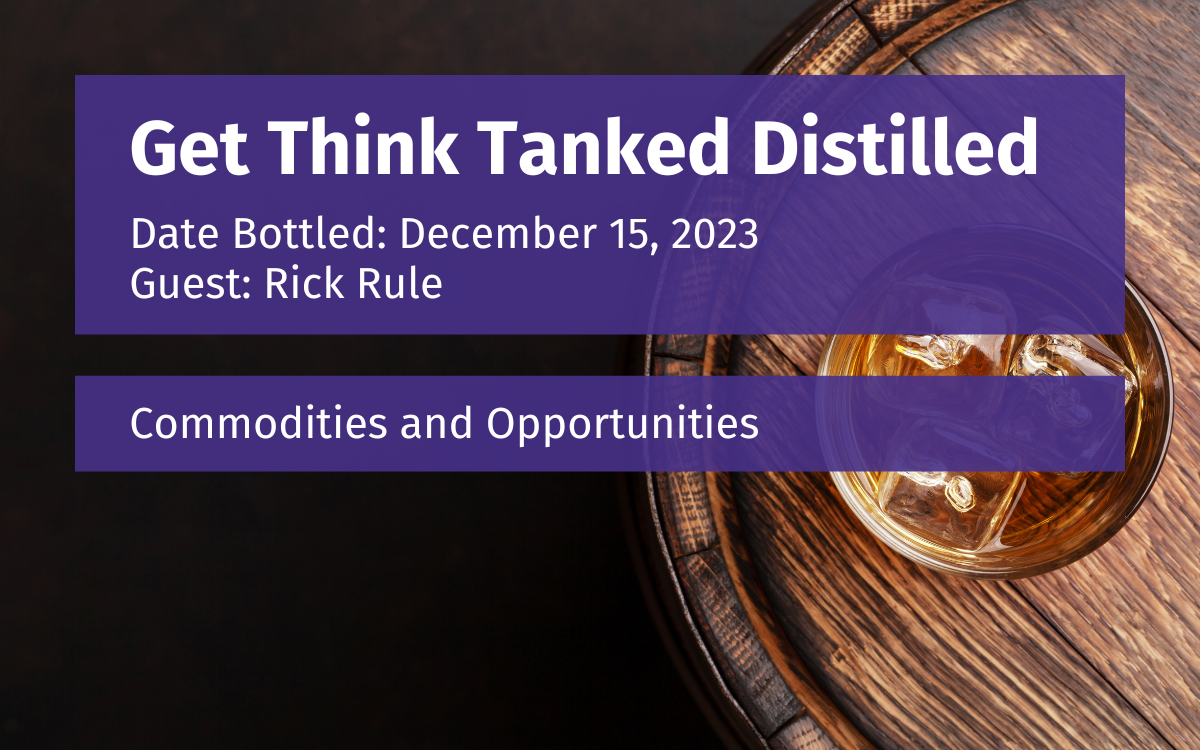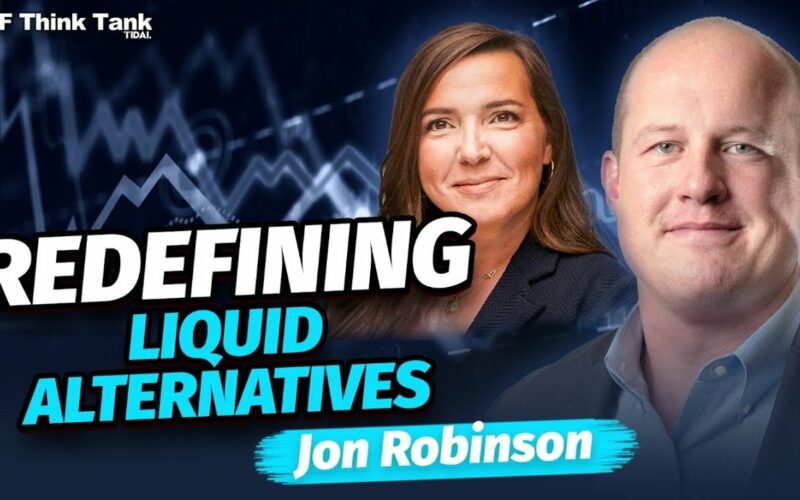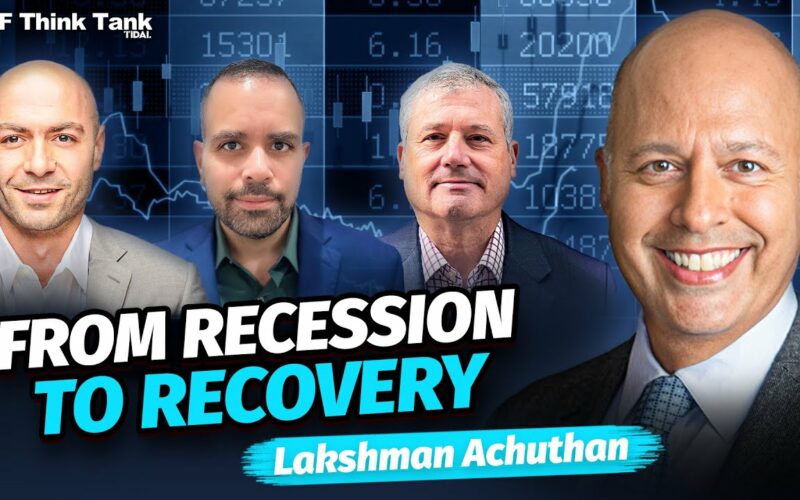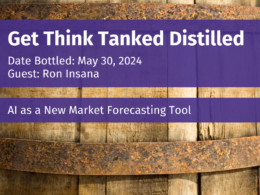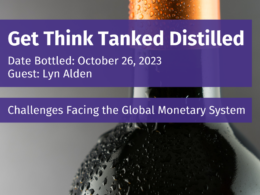Rick Rule, the president/CEO of Rule Investment Media and board member of Battle Bank, has been in the business for nearly five decades, specializing in natural resources. By combining his expertise in commodities with the financial services business, Battle Bank has been able to offer products that are both unique to the marketplace and come with a competitive advantage. He joins the ETF Think Tank to discuss why his company’s products are beneficial to people and where the opportunities are in the natural resources space.
Rule got more heavily involved in the community banking business years ago because he loved the interplay between assets/liabilities & deposits/loans as well as the way these relationships could benefit customers. Throughout his career, he’s always focused on banks that provided some type of competitive advantage. EverBank, for example, was the first online bank and saved a lot of money off the top because there were no branches. His latest product innovation allows customers to use gold and silver as collateral for a loan.
Some investors, he explains, own $1 million in precious metals, but they might need liquidity for a down payment on a house. His bank would lend against the gold/silver where most financials won’t, knowing that precious metals are extraordinarily liquid and the physical metals are being held in a vault.
Rule says that most financial organizations aren’t doing this because it’s been the most benign market over the past 40 years. Most people haven’t had reason to be really afraid. Gold is more attractive in times of market turmoil and we’ve rarely had those periods in the past several decades. The next decade, he feels, is likely to be a lot different and others could begin implementing his idea.
Rule says that choosing the “right” company for an investor depends on the investor themselves. There’s no one size fits all solution. Some investors are risk tolerant and knowledgeable, so he wouldn’t bring them to certain companies. If risk tolerance and time frames are different, he needs to show them many different options. How do you identify the winners? It depends on how much risk you’re willing to endure and your time frame. Those will drive you to specific companies that fit that profile. For people who just want to live their lives, ETFs are a very good choice, even if they include companies that he wouldn’t personally choose. Gold rewards you infrequently, but it can reward richly when it does.
Rule sees an especially big opportunity in the broader commodities space because we have about two decades of underinvestment. Even without growth in demand, we’ll still have a supply shortfall. He can get extraordinarily bullish over the long-term, but needs to be more selective in the near-term. His recommendation is to find a commodity where it’s necessary for the wellbeing of people worldwide. Oil was a good example. Even though there’s a big push towards and a lot of investment being made in clean energy, there will still be demand for fossil fuels for decades.
What’s the outlook for silver? Rule says that gold has to establish a precious metals narrative first. Once the gold bull market is 30-40% through, it starts to spill over into silver. Silver is generally late to develop, but it also tends to move higher and faster. He believes that gold will go much higher over the next 3-4 years and silver will follow.
Other key takeaways:
- How does Rule deal with market volatility? He notes that volatility is important, but liquidity is more important and gold trades like water. He could trade it in seconds.
- Rule doesn’t use a target breakeven date for his projects, but he does have performance metrics. If they’re not meeting these metrics, he abandons the business.
- The ETF was a game changer because it gave investors easy access to gold. Gold miners, which had been a go-to play for those seeking precious metals exposure, became much less valuable. Some problems have less to do with structure of the market and more to do with changes in the structure of investor expectations. You need to examine the whole reason for underperformance, not just one angle.
- Rule says he’d love to see a uranium futures market. In the past, it’s been a very constrained market, but now, it’s a global market with producers coming from everywhere. This should definitely exist.
- Rule says that the biggest failure over his career came when he became too overconfident too early on. When he started in the 1970s, he thought his success was a consequence of his genius, not considering that the market was doing the work. He was a hubris-ridden young male that quickly turned into a more humble young man.
Disclosure
All investments involve risk, including possible loss of principal.
The material provided here is for informational purposes only and should not be considered an individualized recommendation or personalized investment advice. The investment strategies mentioned here may not be suitable for everyone. Each investor needs to review an investment strategy for his or her own particular situation before making any investment decision.
All expressions of opinion are subject to change without notice in reaction to shifting market conditions. Data contained herein from third-party providers is obtained from what are considered reliable sources. However, its accuracy, completeness, or reliability cannot be guaranteed.
Examples provided are for illustrative purposes only and not intended to be reflective of results you can expect to achieve.
The value of investments and the income from them can go down as well as up and investors may not get back the amounts originally invested, and can be affected by changes in interest rates, exchange rates, general market conditions, political, social, and economic developments, and other variable factors. Investment involves risks including but not limited to, possible delays in payments and loss of income or capital. Neither Tidal nor any of its affiliates guarantees any rate of return or the return of capital invested. This commentary material is available for informational purposes only and nothing herein constitutes an offer to sell or a solicitation of an offer to buy any security and nothing herein should be construed as such. All investment strategies and investments involve risk of loss, including the possible loss of all amounts invested, and nothing herein should be construed as a guarantee of any specific outcome or profit. While we have gathered the information presented herein from sources that we believe to be reliable, we cannot guarantee the accuracy or completeness of the information presented and the information presented should not be relied upon as such. Any opinions expressed herein are our opinions and are current only as of the date of distribution, and are subject to change without notice. We disclaim any obligation to provide revised opinions in the event of changed circumstances.
The information in this material is confidential and proprietary and may not be used other than by the intended user. Neither Tidal nor its affiliates or any of their officers or employees of Tidal accepts any liability whatsoever for any loss arising from any use of this material or its contents. This material may not be reproduced, distributed, or published without prior written permission from Tidal. Distribution of this material may be restricted in certain jurisdictions. Any persons coming into possession of this material should seek advice for details of and observe such restrictions (if any).




